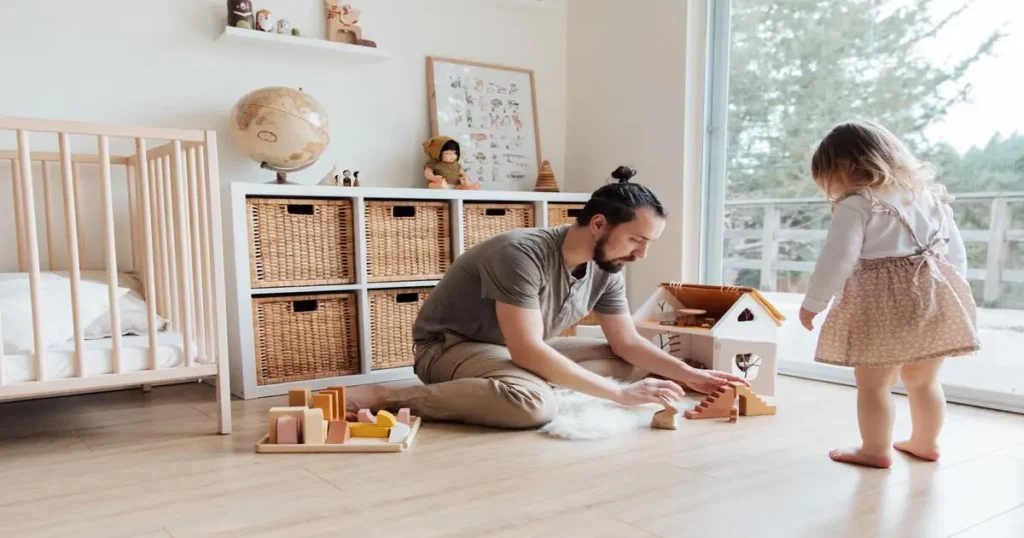Co-Parenting Tips: Raising Children in a Positive Way After Divorce

Co-parenting occurs when two parents join forces to raise their children, regardless of whether they’re still a couple. As time has passed, society has increasingly recognized the impact of divorce on children, causing the notion of co-parenting to evolve.
In earlier times, one parent, typically the mother, would be granted primary custody, while the other parent’s involvement would be minimal. Nonetheless, studies have demonstrated that children thrive when both parents actively participate in their lives, even after a divorce.
Inadequate co-parenting can result in adverse consequences for children, including heightened stress, anxiety, and challenges in their social and emotional growth. When parents fail to collaborate effectively, they might unintentionally establish an unstable environment for their children, leading to persistent long-term issues that can extend into adulthood.
Conversely, successful co-parenting after a divorce has the power to enhance children’s well-being and overall health. Emphasizing open communication, collaboration, and mutual respect, positive co-parenting fosters a more stable and nurturing atmosphere for children.
In this article, we will explore the significance of positive co-parenting and offer valuable advice on how to co-parent effectively, promoting the healthy growth and development of well-rounded children.
The Maturity of Parents as a Factor in Positive Co-Parenting
Maturity means being grown-up and responsible. Parents need to be mature when they co-parent because it helps their kids feel safe and happy. Here are some tips for being mature when co-parenting:
Know your feelings: It’s important to understand your emotions and how they might affect your co-parenting. When you’re aware of your feelings, you can healthily handle them. Make sure to deal with your emotions away from your kids so they don’t get caught in the middle.
Put your kids first: As a mature co-parent, you should always focus on what’s best for your kids. This means making decisions based on their needs and well-being, even if it’s not what you want. When you prioritize your kids, they feel more secure and supported.
Stay calm and patient: Co-parenting can be stressful at times, but it’s essential to remain calm and patient. By staying composed, you can make better decisions and communicate more effectively with your co-parent. Your kids will also feel more at ease when they see you staying calm.
Be open to compromise: Mature co-parents understand that they may not always agree on everything, but they’re willing to find common ground. Be open to discussing different ideas and finding solutions that work for both you and your co-parent.
Get help if you need it: Sometimes, co-parenting can be overwhelming or difficult to navigate. Don’t be afraid to seek help from a counselor, therapist, or support group if you’re struggling. Getting professional guidance can help you work through issues and develop the maturity needed for successful co-parenting.
By embracing these tips and focusing on developing your maturity as a co-parent, you can create a more positive and nurturing environment for your children.
Types of Co-Parenting
Various approaches exist for parents to collaborate in raising their children:
Parallel parenting: In this style, parents have limited communication and follow their methods of raising the children. While this can be beneficial if the parents often argue, it may confuse the kids due to inconsistent rules and routines.
Cooperative co-parenting: Here, parents communicate regularly and make joint decisions regarding their children’s upbringing. This approach helps children feel more stable and secure. However, it may be challenging if the parents continue to disagree or engage in conflicts.
Co-parenting with a mediator: In this scenario, a third party, such as a counselor or mediator, assists the parents in communicating and making decisions. This can be advantageous in preventing disputes, but it may require additional time and resources to involve an external helper.
Each co-parenting style has its pros and cons, and parents need to choose the approach that best suits their unique situation and fosters a healthy environment for their children to grow and thrive.
Shared Parenting: A Balanced Approach for the Well-being of Your Children
Shared parenting is a type of co-parenting arrangement in which both parents play an active and equal role in their children’s lives. This approach ensures that children maintain strong bonds with both parents, even after a divorce or separation. The importance of shared parenting lies in its numerous benefits for the children’s emotional, social, and psychological well-being.
The Advantages of Shared Parenting
Stable environment: Children in a shared parenting arrangement often experience a more stable environment, as they have consistent routines and expectations from both parents. This stability helps them feel more secure and supported.
Strong parent-child relationships: Shared parenting allows children to maintain close connections with both parents, which is crucial for their emotional development. It ensures that both parents remain equally involved in their children’s lives, fostering strong and lasting bonds.
Reduced stress: Children in shared parenting arrangements may experience lower levels of stress, as they are less likely to feel caught in the middle of parental conflicts. With both parents working together, children can enjoy a more harmonious family life.
Better academic and social outcomes: Research has shown that children who enjoy equal time and involvement with both parents tend to perform better academically and have more successful social lives. Shared parenting can contribute to the overall success and happiness of children.
Positive role models: Shared parenting allows children to witness both parents cooperating and working together, despite their differences. This sets a positive example of healthy communication and problem-solving skills that children can carry into their relationships.
By embracing shared parenting, a co-parenting plan can provide children with a balanced, supportive, and nurturing environment that promotes their overall well-being and development.
Here Are Some Co-Parenting Tips:
Challenges in Co-Parenting
At times, co-parenting can be difficult. Here are a few challenges to be mindful of:
Disagreements: Divorced parents must discuss issues without resorting to yelling or hurtful words. Learn to communicate calmly and respectfully to prevent conflicts from escalating.
Consistency: Ensure that both parents follow the same rules and routines for the children. Consistency helps kids feel more secure and understand what is expected of them.
Adjusting to new family members: The introduction of new partners or step-siblings can be challenging for everyone involved. Be patient and understanding as everyone adjusts to the changes in the family dynamic.
Avoid Arguments: Keep disputes away from children.
Discuss disagreements over the phone or through text/email after the kids are asleep.
Keep the Co-parent Informed: Share school emails, upcoming important dates, and medical information promptly
Professional Relationship: Treat the co-parent like a co-worker, focusing discussions only on matters concerning the kids.
Be Kind: Offer genuine compliments when deserved and maintain a respectful demeanor.
Vent Wisely: Vent frustrations away from the kids, ideally when they are with the other parent.
No Trash Talk: Avoid negative talk about the co-parent in front of the kids.
Kids First: Prioritize the kids’ needs, even when it’s tough personally.
By being aware of these challenges and finding ways to address them, co-parents can work together more effectively and create a positive environment for their children.
Healthy Co-Parenting
Healthy co-parenting creates a supportive environment for children. Here are some tips to help you achieve this:
Communicate kindly: When discussing matters concerning your children, avoid using mean or rude language. Speak respectfully and calmly to create a positive atmosphere.
Be adaptable: Be prepared to adjust your plans when it’s in the best interest of the children. Flexibility is key to working together as a co-parenting team.
Establish boundaries: Set clear guidelines about your responsibilities and limits as co-parents. Having boundaries helps maintain respect and prevents misunderstandings.
By following these tips, you can foster a healthy co-parenting relationship that benefits both you and your children.
Mastering Co-Parenting
To excel at co-parenting, keep these essential aspects in mind:
The 4 Cs: Focus on being consistent, communicating effectively, cooperating, and compromising. These four elements lay the foundation for a successful co-parenting relationship.
Speak clearly: When discussing matters about your children, use simple and concise language to avoid confusion or misinterpretation.
Stay connected: While it’s not necessary to talk every day, make an effort to check in with each other regularly. This helps maintain open communication and ensures both parents are on the same page.
By concentrating on these fundamental principles, you can work towards mastering co-parenting and creating a nurturing environment for your children.
Age and Frequency of Communication
There is no ideal age for parents to separate, as each child will experience the effects of a split differently based on their age, personality, and individual circumstances. However, maintaining open communication between co-parents is crucial for ensuring children feel supported and understood throughout the process.
Co-parents need to communicate frequently enough to stay informed about their children’s needs, emotions, and daily experiences. Regular conversations help both parents remain involved in their children’s lives and make informed decisions together.
Here are some tips for age-appropriate communication:
Young children: For younger kids, it’s crucial to use simple language and provide reassurance. Co-parents should discuss routines, activities, and any changes that may impact the child’s daily life.
School-aged children: As children grow older, co-parents should share information about school events, friendships, and academic progress. It’s important to stay involved and support your children’s interests and activities.
Teenagers: For teens, co-parents should maintain open communication regarding social lives, academic goals, and emotional well-being. Encourage your teenagers to express their thoughts and feelings openly while respecting their growing independence.
By adjusting communication styles to suit your children’s ages and needs, co-parents can better support their children’s well-being and create a stable environment for growth and development.
Conclusion
Ultimately, a successful co-parenting relationship is vital for raising emotionally healthy and happy children. By exhibiting maturity, exploring different co-parenting styles, addressing challenges, and maintaining a healthy co-parenting relationship, parents can significantly improve their children’s lives and overall mental health.
Don’t hesitate to seek assistance from counselors, family therapists, or support groups when needed. They can provide valuable insights and guidance on how to excel at co-parenting. Always keep your children’s best interests at heart and remember that working together as a united team will have a lasting, positive impact on their lives.
Embrace the journey of co-parenting, and by doing so, you’ll create a nurturing and supportive environment for your children to thrive in, setting them up for a brighter future.







